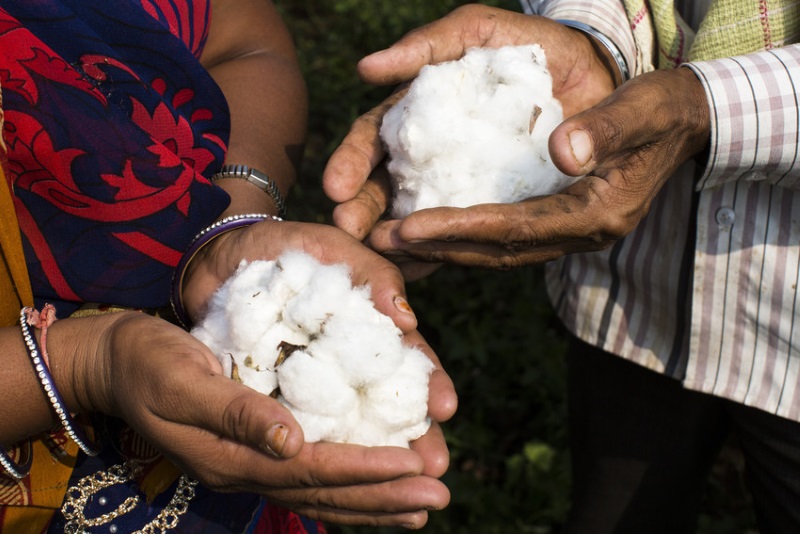Lidl GB has announced that it will be the first UK retailer to convert all its cotton staff uniforms to Fairtrade, the independent, third-party certification that partners with farmers and workers to negotiate better prices, decent working conditions, and a fairer deal overall.
The uniform range is being rolled out across all stores, with a commitment to purchase 330,000 shirts, trousers, polo tops and chinos, and will be worn by the retailer’s 22,000 store colleagues. This equates to a volume of 175 metric tonnes of Fairtrade certified cotton, benefitting farmers in India. The announcement comes as Fairtrade Fortnight gets under way.
We’re delighted to be the first UK retailer to convert all of our store team uniforms to Fairtrade cotton, opening up a valuable market for Fairtrade cotton farmers around the world.
Not only will this move significantly benefit the farmers who grow the cotton in our uniforms, but it will mean that our store colleagues will have access to uniforms made from high quality, sustainably sourced fabric which they can wear with great pride. This new development builds on our long-standing commitment to Fairtrade which sees Lidl GB sell over 100 different types of Fairtrade certified products every year, as well as being the UK’s largest retailer of Fairtrade cocoa – with 22% of the Fairtrade cocoa sold in the UK coming from Lidl GB. We are also pleased to announce that following a successful trial period, our scrummy caramelised almonds and sea salt Way to Go! Chocolate bar is going to be sold nationwide from mid-March – so keep your eyes peeled in your local store!
Amali Bunter, LIDL GB’S HEAD OF RESPONSIBLE SOURCING AND ETHICAL TRADE
Fairtrade works with cotton farmers to stop or reduce the usage of agrochemicals and supports them to adapt to changing climate patterns. Fairtrade cotton fields are rain-fed, reducing the region’s water footprint.
Fairtrade Standards protect cotton farmers’ health and safety and ban genetically modified cotton seeds and Fairtrade encourages and empowers producers to protect the natural environment as an integral part of their farm management.
Lidl’s uniform conversion means so much to cotton farmers who are finding themselves on the frontlines of the climate crisis and have suffered so much as a result of the global pandemic. To be able to sell their cotton on Fairtrade terms will help build farmers’ resilience and mean better prices plus a bit extra to invest in community projects.
Anna Barker, Head of Responsible Business at the Fairtrade Foundation
The announcement comes at the start of Fairtrade Fortnight which takes place between 21 February- 6 March. This year marks the second anniversary of Fairtrade’s climate campaign Choose the World You Want asking the British public to get behind Fairtrade so that farmers in low-income countries can benefit from fairer prices, trading practices and the resources needed to tackle climate change.
–Ends –
For more information, interviews or images, please contact martine.parry@fairtrade.org.uk Tel: 07886 301486.
Download images here.
Notes to Editors
You can read more information about Fairtrade cotton here.
About Fairtrade
Fairtrade changes the way trade works through better prices, decent working conditions, and a fairer deal for farmers and workers in low-income countries.
Fairtrade International is an independent non-profit organization representing 1.9 million small-scale farmers and workers worldwide. It owns the FAIRTRADE Mark, a registered trademark of Fairtrade that appears on more than 37,000 products. Beyond certification, Fairtrade International and its member organizations empower producers, partner with businesses, engage consumers, and advocate for a fair and sustainable future.
Fairtrade is committed to fighting the climate crisis. Fairtrade Standards encourage producers to protect the environment by improving soil, planting trees, conserving water and avoiding pesticides, while Fairtrade’s programmes include climate academies for farmers to share best practice. At the same time, Fairtrade makes training available to producers so that they can use the latest agricultural methods, such as intercropping and shade-grown coffee to adapt to conditions.
The FAIRTRADE Mark on a product means that the Fairtrade ingredients in that product have been independently verified by FLOCERT, an independent certifier accredited by the International Organization for Standardization (ISO). FLOCERT can and do suspend or, in some cases, even decertify Fairtrade producer organisations if their audit shows that Fairtrade Standards are not being complied with.
Find out more at http://www.fairtrade.net
